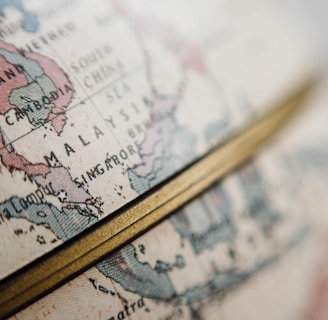Travel Etiquette: Navigating Cultural Differences Respectfully
ORICAL TRAVELS INSIGHTS
2/7/20252 min read


Understanding Travel Etiquette
Traveling the world brings a rich tapestry of experiences, but it also challenges us to understand and respect cultural differences. Travel etiquette is a crucial part of a successful journey, helping us connect with locals and immerse ourselves in different lifestyles. To navigate each new destination respectfully, it’s essential to familiarize yourself with local customs and practices.
Be Mindful of Local Customs
Every culture has its unique traditions, and being aware of these can enhance your travel experience. For instance, in some countries, tipping is considered rude, while in others, it’s a common practice expected after a meal or service. Always do a little research before you arrive. Simple actions like greeting locals properly, using polite gestures, or dressing accordingly can show respect and appreciation for the culture you are experiencing.
Communicate respectfully
Body language can vary significantly between cultures. A gesture that is friendly in one country may be offensive in another. For example, maintaining eye contact is often seen as a sign of confidence in many Western cultures, but it can be interpreted as rude in some Asian cultures. When communicating, observe how locals interact with each other, and adjust your behavior to fit in. Learning basic phrases in the local language can go a long way; it shows respect and willingness to engage with the culture.
Another aspect of travel etiquette involves understanding personal space and social interactions. In some cultures, close physical proximity is common, while in others, maintaining distance is the norm. Pay attention to cues from those around you, and adjust your interactions accordingly.
Moreover, it's essential to practice active listening. When locals share stories about their culture or traditions, showing genuine interest creates a positive rapport and fosters goodwill. Ask questions, but be mindful of sensitive topics; it's vital to navigate respectfully when discussing history or politics.
Food and Dining Etiquette
One of the most delightful ways to experience a culture is through its cuisine. However, dining etiquette can vary dramatically. In some cultures, finishing all the food on your plate is expected, while in others, leaving a bit reflects that you’ve been well-fed. Familiarizing yourself with dining norms—like using chopsticks in Japan or the practice of sharing plates in Middle Eastern countries—can show respect and enhance your culinary experience.
Lastly, always be open to learning. Traveling is about immersion, and learning about travel etiquette should be part of your journey. If you're unsure of how to behave in a certain situation, it’s generally acceptable to observe others or even ask questions. It’s better to be curious than to assume!
In summary, navigating cultural differences respectfully can greatly improve your travel experiences. By staying informed, observing local behaviors, and showing appreciation for unique customs, you'll create meaningful connections and memories that last a lifetime. So pack your bags, do your homework, and get ready to embrace the rich tapestry of cultures waiting for you!
Don't miss out! Get the travel inspiration you crave with our exclusive blog posts, insider hacks, and up-to-the-minute travel news.
Subscribe


